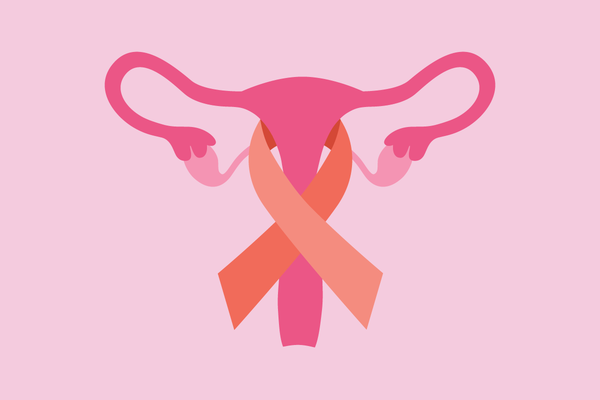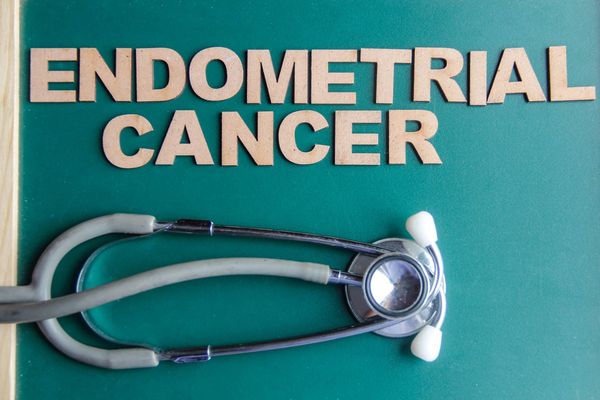Endometrial cancer is cancer that forms in the lining of the uterus, which is called the endometrium. It is the fourth most common cancer for women in the United States and affects 1 in 50 women.
The good news? Doctors have many tools for treating endometrial cancer, and they work well, especially when the cancer is caught early. More than 80% of women diagnosed with endometrial cancer are alive five years later — and this number jumps to 95% if the cancer hasn’t spread outside the uterus.
Understanding the treatment options for endometrial cancer — including surgery, radiation and medication — can help you prepare for the road ahead. We spoke with Nita Lee, MD, associate professor of obstetrics and gynecology at the University of Chicago, about how endometrial cancer is treated.
What types of surgery are used for endometrial cancer?
These days, the most common surgery is minimally invasive (done through tiny cuts) laparoscopic or robotic surgery. We use this type of surgery for most endometrial cancer patients to remove the uterus and fallopian tubes and collect information about the lymph nodes.
If patients have more advanced disease that has spread to the lymph nodes or ovaries, or if the uterus is too large to do minimally invasive surgery, they may need to have open abdominal surgery.
What role does radiation therapy play in treating endometrial cancer?
Radiation therapy is most commonly used as an additional treatment after surgery. Care after surgery, called post-operative care, sometimes can involve radiation therapy based on certain findings at the time of surgery.
For example, if a person has certain risk factors in the uterus, their healthcare provider (HCP) might recommend they have vaginal radiation, or perhaps more involved pelvic radiation. Or if they have certain factors, such as cancer being found in the cervix after it was surgically removed, they may need radiation of the pelvic area.
Some patients with more advanced disease that involves the lymph nodes will get radiation in addition to chemotherapy. Occasionally, patients who are not eligible for surgery and who don’t want fertility-sparing treatment will get radiation only, but that's fairly rare. It really varies depending on the patient.
What systemic (total body) treatments are used for endometrial cancer?
- Chemotherapy is the backbone of treatment for patients diagnosed at an advanced stage. For example, if we find during surgery that a person has stage 3 or 4 cancer, they’ll often get chemotherapy as part of their post-surgery treatment plan.
People with stage 1 disease who have certain high-risk cell types also get chemotherapy after surgery.
- Immunotherapy is a newer form of therapy. It’s similar to chemotherapy in that the medicine is given through an IV, but immunotherapy drugs work differently in the body.
While chemotherapy drugs typically act on the cancer cells themselves, immunotherapy is designed to help your body's immune system attack the cancer.
One of the ways cancer cells get by your immune system is by hiding behind or making certain proteins so that your body doesn't recognize the cancer cells as bad. Immunotherapy helps uncover the cancer.
Immunotherapy works best for certain categories of endometrial cancer, meaning it works better for some people than others. It's been a game changer for recurrent endometrial cancer patients, as well as those who are diagnosed at an advanced stage.
- Hormone therapy is used for endometrial cancers that are estrogen receptor– or progesterone receptor–positive, meaning the cancer cells contain receptors for estrogen or progesterone. We manipulate these receptors with hormones to try to treat the cancer.
- Targeted therapy destroys cancer cells without harming other cells. Probably the most well known target is HER2, a protein we often hear about when we talk about breast cancer. Recent research shows a link between endometrial cancer and HER2, and targeted therapy can help.
Are there fertility-sparing treatments available for endometrial cancer?
Yes. Hormone therapy is the most common treatment for patients who are concerned about fertility. Usually we tend to limit fertility-sparing treatment to patients with stage 1 disease and those with lower-risk types of endometrial cancer (versus those with high-risk cell types).
What factors are considered when making treatment decisions?
A lot of our treatment decisions are based on the patient’s molecular profile, which looks at the tumor cells and the biomarkers and tells us exactly what type of endometrial cancer they have and whether the tumor will respond to certain treatments. We also look at any other health problems they may have and their goals for treatment, and we always want to balance quality of life.
This educational resource was created with support from Karyopharm and Merck.
- My Doctor Told Me to Go Get Pregnant to Treat My Endometriosis ›
- Learn About 5 Types of Gynecologic Cancer ›
- Clinically Speaking: Questions to Ask Your HCP About Endometrial Cancer ›





